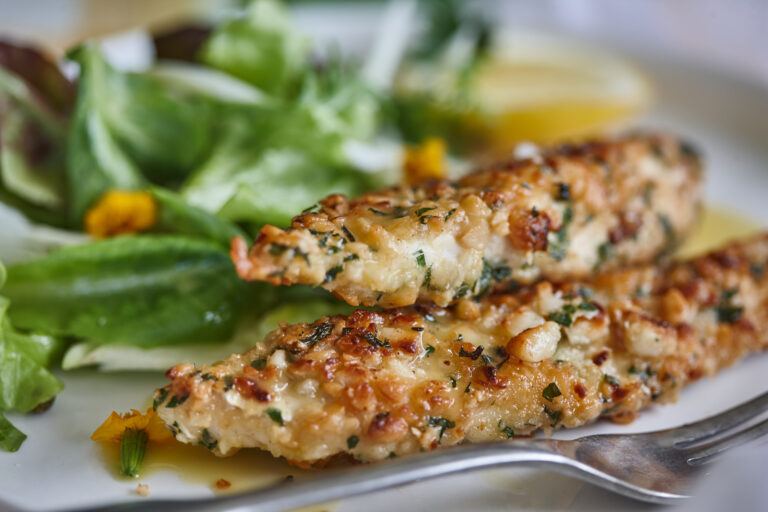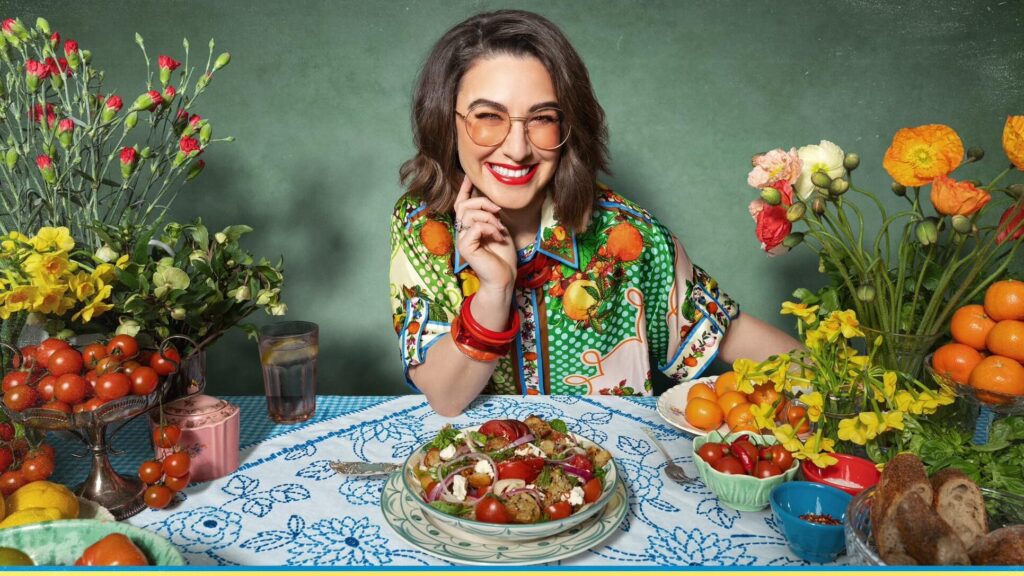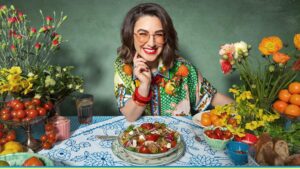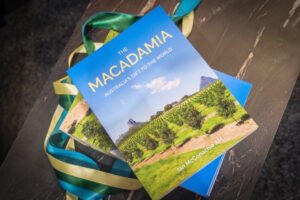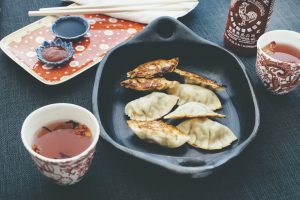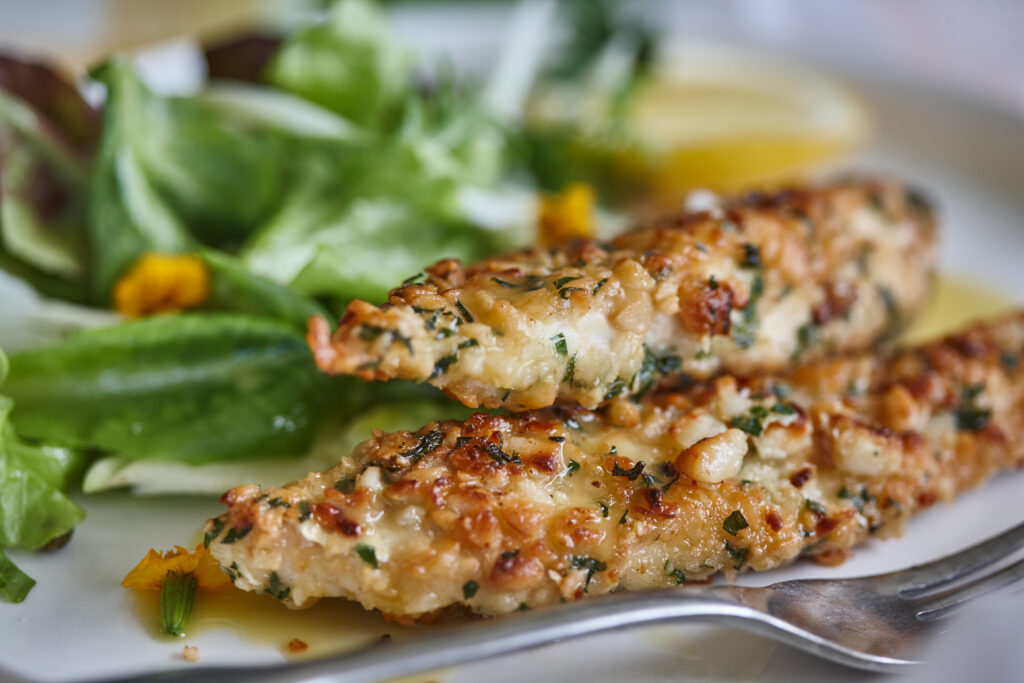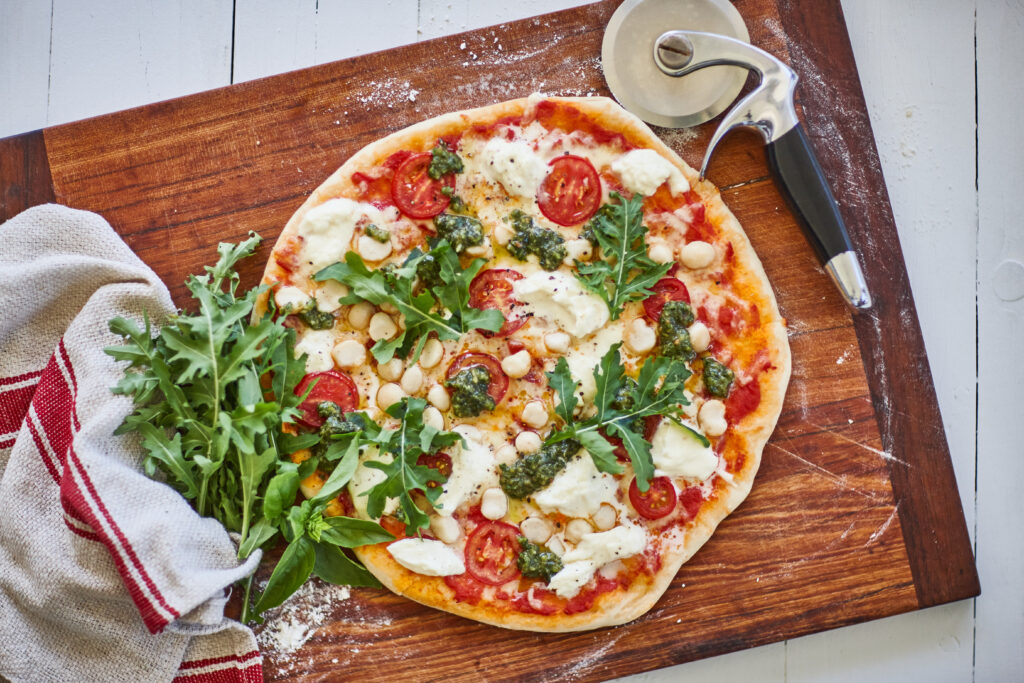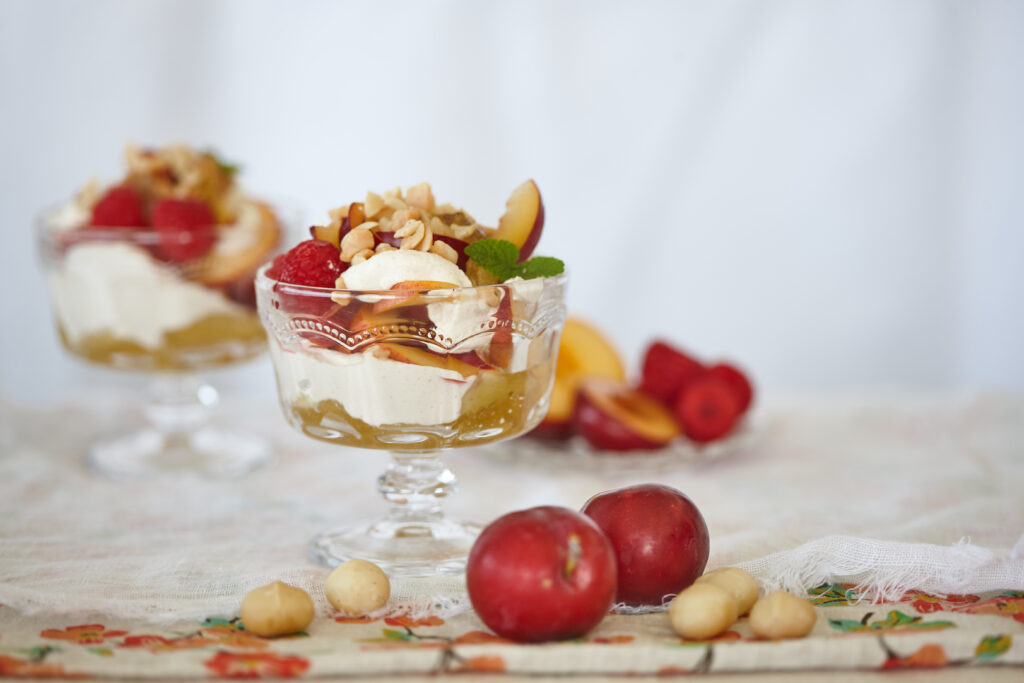Meet our growers
Home » Meet our growers
Every grower has a unique story, and together they make up Australia’s close and collaborative macadamia-growing communities. Whether a third generation farmer or former accountant, they all share one thing in common: a dedication to sustainably growing the world’s best macadamias.
Zoe and Andrew Lewis
Andrew Lewis grew up on a peanut farm and after university worked in commercial construction. His wife Zoe grew up on the Gold Coast and worked in finance in Brisbane before she and Andrew bought a cane farm on the northern side of Bundaberg shortly after the birth of their first child in 2009. They were excited to be leaving Brisbane and were confident that the rich soils of Bundaberg paired with the regions water security would be suitable for growing both peanuts and macadamias.
The couple moved to their current farm in 2013, located 15 min West of Bundaberg. For their first few years on the property, the couple farmed cane and peanuts while they painstakingly struck 48,000 macadamia trees from seed in their nursery and established their orchard block by block, grafting several macadamia varieties that were suited to their soil type. The process took four years. “We started planting in April 2016 and finished in October 2020,” says Zoe.
Since moving to Bundaberg, the pair have enjoyed the benefits of the tight-knit farming community. They have particularly enjoyed being a part of the thriving macadamia industry in the area which has grown substantially in the last few years. “It’s an exciting industry to be in, and in the Bundaberg district the macadamia growing community are all very open and friendly. We’ve got a great group of growers that are willing to share their new ideas and innovations. We are all interested in growing the best and most sustainable crop that we can.”
It’s not just the collaborative industry that the couple enjoy. It’s the ability to farm in a way that builds up the soil and sequesters carbon. Recent bumper prices have allowed growers to spend more on improving their soils. Andrew explains: “Pretty well all of the farms around Bundaberg have made a heavy investment in composting and spreading compost, we try to grow as much organic matter as we can to throw back under the trees. Once you’ve had the trees in the ground for a few years, and you’ve been continuing on with a compost and organic matter routine, you start to actively sequester carbon. Our carbon levels have doubled since we developed this farm for macadamias. The fact that we’re sequestering carbon is a big deal for our farm and the environment!”
They also love knowing that they are growing a crop that is good for people and one that they love eating. Normally, the couple opt for freshly cracked nuts using a trusty TJ’s nutcracker, but they also like to eat them roasted and lightly salted when they are “feeling adventurous”. Zoe and Andrew also use them often in cooking. “Chocolate macadamia brownies are good” says Zoe. “The kids are a fan of those. I also use them in salads or put roasted, crushed macadamias on the top of our Thai and Indian food.”
Ross Arnett
Ross Arnett’s farm, “Malua”, located on the Alstonville Plateau in northern New South Wales, has been in his family since 1872. The orchard is 10 hectares with 2,000 macadamia trees that range in age from 7 to 17 years. All fairly young when you consider that macadamia trees can live for more than 100 years.
Ross is happy to call himself a regenerative farmer and is constantly looking for kinder ways to grow macadamias. Key to this, Ross says, is preserving, protecting and building the soil. “Soil is the key to good farming practices,” he says. “I use compost to feed the soil biology and grow healthy soil, which leads to healthy trees. Healthy trees have fewer pest and disease problems. Better soils make better trees!”
Biodiversity is also very important at Malua. Ross promotes this by using cover crops and shrubs to provide habitat for insects and birds. This diversity keeps an orchard healthy. Around the perimeter of the orchard Ross has planted tall growing cover crops like sunflowers, sun hemp, and sorghum, mixed in with buckwheat and clovers.
“That height diversity is really good for attracting insects and birds,” says Ross. In the inter-rows between the trees, he grows lower-growing cover crops that bring beneficial insects into the orchard, including aphids, which then attract lady beetles, and lacewings, which are natural predators for common macadamia pests. “It’s a complex, natural arrangement that all works beautifully!” he says.
These practices help the property stay resilient in the face of drought. The summer of 2019/2020 produced some of the harshest drought conditions the property had ever seen. But despite that, his trees were very healthy and still flushing with flowers, even in those stressful conditions.
Ross is proud of the macadamias he grows. “I think everyone should eat more nuts – they’re so good for you! My favourite way to use macadamias is to take small macadamia pieces, roast them in the oven and then use them to sprinkle in salads, stir fries or desserts. Oh, and nothing beats homemade macadamia butter on sourdough!”
Elle Revell
Having studied agricultural science at UQ in Gatton and worked as a vegetable agronomist, Elle moved to Rous in the Northern Rivers of NSW two years ago with her family. She finds it really exciting to farm with them – especially in a place that gets more rain! The orchard, located at Rous in the Northern Rivers, is 30ha and has about 10,000 trees of a wide range of varieties and ages – some trees are over 30 years old.
Elle loves the hands-on work of managing the farm. “I have always loved being outside and getting my hands dirty. I’m also interested in science and sustainability, so I find working on the farm combines all my interests and challenges me to learn more. Every day on the farm is different. There’s so much to it. I have had to learn to be a mechanic and a bookkeeper and much more as well. There are so many challenges to keep me guessing!”
Elle says she never feels like she is on her own though. She finds the macadamia industry so welcoming and loves how willing everyone is to share their knowledge and expertise.
“I have met many other women in the industry through the AMS as well as at industry field days and functions. They are all very inspiring. I feel it’s an equal industry in that regard as many women are trialing innovative ideas and new methods of growing macadamias.
My favourite part of being a macadamia farmer is the satisfaction I get from raising a seedling through our nursery, grafting it, planting it in the field and then being able to harvest from that tree, knowing that it will be there for most of my lifetime. I also like being able to work with my family and our small team, and to have my dogs by my side all day! When I’m not on the farm I make the most of being so close to the ocean by surfing, and exploring all the beautiful places around here.”
Elle’s favourite way to eat macadamias is coated in chocolate or honey-roasted but she also enjoys just cracking them open straight from the ground and “before they are dried when they still taste coconutty.”
Ann and Andrew Leslie
Entrepreneurial couple Ann and Andrew Leslie live and breathe macadamias. Ann is the founder of Avilla Farm Skincare, a macadamia oil skincare range. Her husband, Andrew, is a macadamia grower, running several macadamia orchards including their own 3,000 tree macadamia farm near Alstonville, Northern NSW.
The Leslie family moved to the New South Wales macadamia-growing region in 2008 after many years living and working in Brisbane. Ann, a former teacher and Andrew, a former accountant, bought a working macadamia farm. For Andrew this was a return to his roots as he grew up on his parents macadamia farm.
“Andrew’s parents farm was one of the early macadamia farms in the Alstonville area”, says Ann. “Andrew has memories of planting out and harvesting macadamias by hand with his siblings.”
After working in different industries, the pair were able to bring a new perspective and practices to the farm. In particular, Ann brought a passion for quality, beneficial skincare. She is evangelical about the benefits of macadamia oil in skin care. “People love it as a food. Not many people know it as skincare, but when they try it, they love it. It mimics the natural oils of the skin, is super nourishing and repairing and is suitable for most skin types.”
This passion has led Ann to craft a range of six face and body products, all containing premium quality Australian macadamia oil, as well as other proven beneficial ingredients like Kakadu Plum and Manuka Honey. In the food world, the term ‘Paddock to Plate’ is commonly used. Ann has coined the phrase ‘Farm to Face’ to communicate the idea that her products are produced using all-natural key ingredients from Australian farms.
Although Ann and Andrew’s four kids have almost all flown the coop, they retain their enthusiasm for macadamias and the macadamia industry. Several of them have floated plans to expand the Avilla Farm brand to help realise the potential of the nuts grown on the family farm.
It’s not just skin care recipes that Ann crafts. She also dreams up macadamia inspired meals in the kitchen. “Crumbed salmon with a macadamia sourdough crust is probably my favourite way to enjoy them. I sampled it at an Australian Macadamias event once and went home and got creative!”
And as for her favourite time of year, Ann loves Spring. “I actually love it when the macadamia trees are in flower – it’s quite stunning. And then of course when the trees are full of nuts. It’s always a good feeling to see the year’s crop there.”
